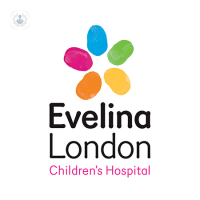What is faltering growth?
“Faltering growth” is a term used for when infants and young children do not gain weight as quickly as expected for their age and sex. Growth may be slow or, in some cases, the child may actually lose weight. As such, faltering growth is a common cause for concern for parents.
Symptoms of faltering growth
The key symptom is slow weight gain, no weight gain, or even weight loss. Infants have their weight monitored in regular check-ups with doctors, so faltering growth is usually spotted quickly.
In the first few days of life, it is normal for a baby to lose some weight. This is usually to do with body fluid adjustments. As feeding patterns are established, they will then slowly gain weight, with most infants regaining their birth weight by three weeks.
However, if the infant loses 10% of their birth weight, this requires investigation, including a clinical assessment and observation of feeding.
What are the causes of faltering growth?
Faltering growth is most commonly caused by inadequate nutrition. A range of factors can be responsible, including:
- Ineffective suckling or bottle feeding
- Feeding aversion
- Physical disorders that affect feeding
- Inadequate feeding patterns/routines
- Interaction between parents and child, including behaviour caused by post-natal depression or anxiety in the mother
Treatments for faltering growth
First, the situation must be assessed by a doctor, by observing how the child is fed and with a clinical assessment.
The doctor may offer feeding support measures, such as supplementary feeding with infant formula, or complementary solid food for older infants. For younger infants, the doctor may be able to offer advice to mothers on breastfeeding and how to promote their milk supply.
In severe cases where the child’s growth continues to falter and other measures are ineffective, perhaps due to a physical problem, a feeding tube may be required.
Which type of specialist treats faltering growth?
Paediatricians and paediatric gastroenterologists will be responsible for diagnosing and treating the causes of faltering growth.
Crecimiento vacilante
What is faltering growth?
“Faltering growth” is a term used for when infants and young children do not gain weight as quickly as expected for their age and sex. Growth may be slow or, in some cases, the child may actually lose weight. As such, faltering growth is a common cause for concern for parents.
Symptoms of faltering growth
The key symptom is slow weight gain, no weight gain, or even weight loss. Infants have their weight monitored in regular check-ups with doctors, so faltering growth is usually spotted quickly.
In the first few days of life, it is normal for a baby to lose some weight. This is usually to do with body fluid adjustments. As feeding patterns are established, they will then slowly gain weight, with most infants regaining their birth weight by three weeks.
However, if the infant loses 10% of their birth weight, this requires investigation, including a clinical assessment and observation of feeding.
What are the causes of faltering growth?
Faltering growth is most commonly caused by inadequate nutrition. A range of factors can be responsible, including:
- Ineffective suckling or bottle feeding
- Feeding aversion
- Physical disorders that affect feeding
- Inadequate feeding patterns/routines
- Interaction between parents and child, including behaviour caused by post-natal depression or anxiety in the mother
Treatments for faltering growth
First, the situation must be assessed by a doctor, by observing how the child is fed and with a clinical assessment.
The doctor may offer feeding support measures, such as supplementary feeding with infant formula, or complementary solid food for older infants. For younger infants, the doctor may be able to offer advice to mothers on breastfeeding and how to promote their milk supply.
In severe cases where the child’s growth continues to falter and other measures are ineffective, perhaps due to a physical problem, a feeding tube may be required.
Which type of specialist treats faltering growth?
Paediatricians and paediatric gastroenterologists will be responsible for diagnosing and treating the causes of faltering growth.
Doctores expertos en Crecimiento vacilante
-
Dr Margarita Burmester
PediatríaExperto en:
- Chequeo médico
- Cólico del lactante
- Crecimiento vacilante
- Estreñimiento
- Atención primaria de niños
- Newborn physical examination
-
Dr Silvia Pierini
PediatríaExperto en:
- Infección respiratoria
- Newborn physical examination
- Nutrición infantil
- Lactancia Materna
- Crecimiento vacilante
- Infección en el oído
-
Dr Sharon Silberstein
Medicina FamiliarExperto en:
- Frenillo lingual
- Lactancia Materna
- Alimentación infantil
- Nutrición infantil
- Crecimiento vacilante
- Mastitis
-
Dr Marie White
PediatríaExperto en:
- Asma en niños
- Estreñimiento
- Reflujo gastroesofágico
- Alergia
- Crecimiento vacilante
- Tos crónica
-
Dr Munir Ahmed
PediatríaExperto en:
- Enuresis infantil
- Incontinencia urinaria
- Reflujo vesicoureteral (RVU) (reflujo renal)
- Celiaquía
- Crecimiento vacilante
- Dolor de cabeza
- Ver todos

Bright Futures Health
Bright Futures Health
77 Wimpole Street, Marylebone, London, W1G 9RU
No existe teléfono en el centro.
Si haces uso de este teléfono facilitado por TOP DOCTORS nos autorizas al tratamiento de tu teléfono para fines estadísticos y comerciales. Para más información, lee nuestra Política de Privacidad
Top Doctors

Dr Silvia Pierini Paediatric Clinic
Dr Silvia Pierini Paediatric Clinic
53 Beauchamp Pl, London
No existe teléfono en el centro.
Si haces uso de este teléfono facilitado por TOP DOCTORS nos autorizas al tratamiento de tu teléfono para fines estadísticos y comerciales. Para más información, lee nuestra Política de Privacidad
Top Doctors

Evelina London Children's Hospital Private Healthcare
Evelina London Children's Hospital Private Healthcare
Floor 1 St Thomas' Hospital, Westminster Bridge Road, London. SE1 7EH
No existe teléfono en el centro.
Si haces uso de este teléfono facilitado por TOP DOCTORS nos autorizas al tratamiento de tu teléfono para fines estadísticos y comerciales. Para más información, lee nuestra Política de Privacidad
Top Doctors
-
Bright Futures Health
77 Wimpole Street, Marylebone, London, W1G 9RU, W1G Marylebone LondonExperto en:
- Atención primaria de niños
- Desarrollo infantil
- Pediatría
- Pediatría preventiva
- Revisión de salud
- Vigilancia de la salud infantil
-
Dr Silvia Pierini Paediatric Clinic
53 Beauchamp Pl, London, Central LondonExperto en:
- Atención primaria de niños
- Cuidado de maternidad
- Dermatología pediátrica
- Desarrollo infantil
- Pediatría
- Vigilancia de la salud infantil
-
Evelina London Children's Hospital Private Healthcare
Floor 1 St Thomas' Hospital, Westminster Bridge Road, London. SE1 7EH, SE1 South Bank LondonExperto en:
- Dermatología pediátrica
- Desarrollo infantil
- Nutrición infantil
- Pediatría
- Pediatría preventiva
- Vigilancia de la salud infantil
- Ver todos







